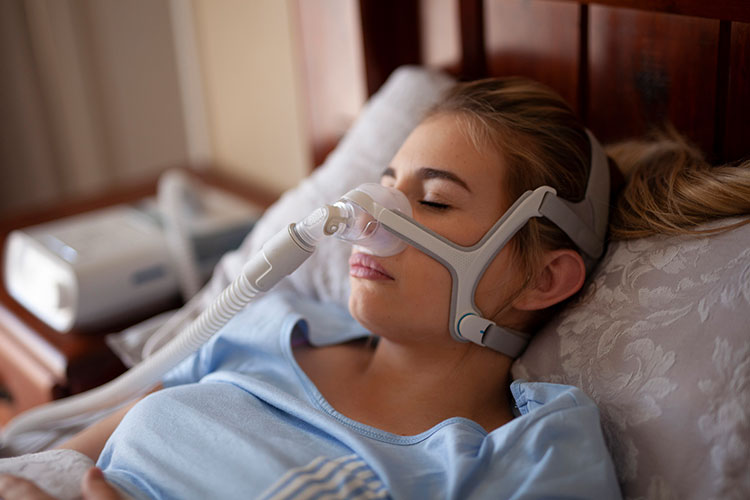Efficient Treatment Solutions for Handling Sleep Disorders and Enhancing Peaceful Sleep
In the realm of health care, the management of sleep disorders and the quest for peaceful rest are critical parts of overall wellness. Reliable treatment services supply a complex technique to take on these difficulties, varying from cognitive behavior treatments to alternative methods that promote leisure and mindfulness. The exploration of different techniques, including the assimilation of medication and light treatment, opens a world of opportunities in the quest of better sleep top quality. As we browse the intricate landscape of rest disorders and seek to boost our sleep experience, a much deeper understanding of these therapy services may hold the trick to unlocking a more relaxing and satisfying corrective journey.
Cognitive Behavior Modification for Sleeplessness (CBT-I)
Cognitive Behavior Treatment for Sleep Problems (CBT-I) is a structured, evidence-based therapy technique that focuses on resolving the underlying elements contributing to sleep disruptions. This sort of therapy aims to customize behaviors and thoughts that worsen insomnia, inevitably promoting healthy sleep patterns. CBT-I usually involves a number of vital elements, including cognitive treatment, sleep restriction, stimulus control, and rest hygiene education and learning.
Cognitive treatment aids individuals determine and transform negative idea patterns and ideas concerning sleep that might be preventing their capability to fall or stay asleep. Rest constraint entails limiting the quantity of time invested in bed to match the person's real rest period, consequently raising sleep effectiveness (sleep therapy). Stimulation control strategies assist establish a solid organization between the bed and sleep by urging individuals to go to bed only when drowsy and to stay clear of engaging in stimulating activities in bed
Moreover, sleep hygiene education focuses on creating healthy rest habits, such as keeping a constant rest schedule, creating a relaxing going to bed routine, and optimizing the sleep atmosphere. By dealing with these variables comprehensively, CBT-I provides a reliable non-pharmacological intervention for handling sleep problems and enhancing general sleep high quality.
Sleep Health Practices
Having established the structure of cognitive restructuring and behavioral modifications in dealing with sleeplessness via Cognitive Behavioral Treatment for Sleeping Disorders (CBT-I), the focus now changes in the direction of exploring crucial Rest Health Practices for preserving optimal sleep top quality and general health.
Sleep hygiene techniques incorporate a variety of routines and ecological elements that can substantially impact one's capability to sleep and stay asleep throughout the evening. Consistent rest and wake times, producing a relaxing bedtime regimen, and optimizing the rest environment by maintaining it dark, silent, and cool are essential parts of excellent sleep health. Limiting exposure to screens prior to going to bed, staying clear of energizers like high levels of caffeine close to bedtime, and engaging in normal physical task throughout the day can likewise advertise better rest high quality.
Moreover, exercising leisure techniques such as deep breathing exercises or meditation prior to bed can help relax the mind and prepare the body go to these guys for rest. By incorporating these rest health methods into one's day-to-day routine, people can develop a healthy rest pattern that sustains relaxing rest and general well-being.
Relaxation Techniques and Mindfulness
Applying relaxation techniques and mindfulness practices can play a critical function in promoting a feeling of tranquility and promoting quality rest. Additionally, guided imagery can aid move individuals to a serene location in their minds, helping in tension decrease and enhancing sleep quality.
Mindfulness methods, such as reflection and yoga exercise, are additionally efficient in advertising relaxation and improving rest. Mindfulness urges individuals to stay existing in the minute, releasing bother with the past or future. By integrating these techniques into a going to bed regimen, individuals can signal to their bodies that it is time to prepare and loosen up for sleep. Generally, incorporating leisure methods and mindfulness practices can dramatically add to handling sleep disorders and enhancing total rest top quality.

Medicine Options for Sleep Disorders
After exploring relaxation methods and mindfulness methods as non-pharmacological treatments for enhancing sleep high quality, it is important to think about medication choices for individuals with rest conditions. In cases where way of life adjustments and therapy do not offer enough relief, medicine can be an important device in taking care of sleep disruptions.
Generally prescribed drugs for sleep problems include benzodiazepines, non-benzodiazepine hypnotics, antidepressants, and melatonin receptor agonists. Antidepressants, such as trazodone, can be advantageous for people with co-occurring anxiety and rest disturbances - insomnia counseling.
It is vital for people to talk to a health care company to identify the most suitable medicine option based upon their certain rest disorder and case history.
Light Therapy for Circadian Rhythm Law
Light treatment, also recognized as phototherapy, is a non-invasive treatment technique used to control body clocks and improve sleep-wake cycles. This treatment involves direct exposure to intense light that imitates natural sunshine, which aids to reset the body's body clock. By subjecting people to specific wavelengths of light, usually in the morning or night relying on the wanted effect, light therapy can successfully readjust the body clock to advertise wakefulness throughout the day and improve peaceful sleep during the night.
Research study has shown that light therapy can be particularly valuable for individuals with circadian rhythm disorders, such weblink as postponed rest phase disorder or jet lag. It can additionally be helpful for those experiencing seasonal affective disorder (SAD), a sort of clinical depression that normally occurs during the winter season when natural light exposure is lowered. Light therapy is normally well-tolerated and can be made use of in combination with other treatment approaches for rest conditions to maximize end results and improve total sleep high quality.
Conclusion
To conclude, effective therapy options for managing rest conditions and Continue enhancing relaxing rest include Cognitive Behavioral Treatment for Insomnia (CBT-I), sleep hygiene methods, leisure techniques and mindfulness, drug alternatives, and light therapy for body clock policy. These methods can aid individuals improve their sleep quality and overall well-being. It is very important to consult with a medical care company to identify the most appropriate approach for addressing sleep issues.
As we navigate the detailed landscape of rest conditions and look for to enhance our rest experience, a deeper understanding of these treatment services might hold the key to unlocking an extra relaxing and fulfilling corrective journey.
Rest constraint includes limiting the quantity of time spent in bed to match the individual's actual sleep duration, consequently boosting rest effectiveness. Constant sleep and wake times, developing a relaxing bedtime regimen, and optimizing the sleep setting by maintaining it dark, silent, and cool are important parts of great rest health. Light therapy is usually well-tolerated and can be made use of in conjunction with various other therapy approaches for sleep conditions to optimize end results and enhance overall rest top quality.
